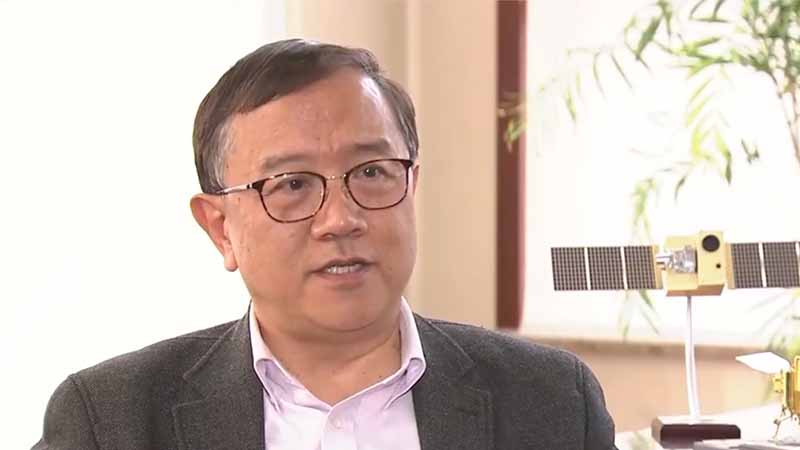
Science
19:06, 04-Mar-2019
CPPCC member proposes setting up National Space Science Lab
By Liu Yang
02:09

Due to the rapid development of information technology and life sciences, it is expected that in the next 20 to 30 years, the development and utilization of solar system resources will become the most active field in the civil aerospace market. Developing in space is an important symbol of a powerful nation in science and technology.
Right before the 2019 Two Sessions, CPPCC member Wu Ji told CGTN that China should contribute national wisdom to the world's space exploration work.
The scientist's office is different: There is an aerolite gifted by his scientist friend from overseas, and a picture as a gift from NASA showing the Chang'e-3 lander and rover path on the moon.
Wu is the chief designer of the payload and application system of the Geo-space Double Star Program, project manager for the scientific payload of China's lunar exploration program Chang'e-1, Chang'e-2 satellite, and Chang'e-3 satellite, and he is also the author of more than 50 papers published in international and domestic academic journals, and member of the International Academy of Astronautics.
Wu said that his whole career is about seeking knowledge from the universe and helping human beings understand it, while using new technologies to build a better society.
This year, he is urgently proposing to the CPPCC that the nation should set up a National Space Science Lab and opening up the deep space market to private enterprises.
Why is that important? He said, "Many jobs can be done through the national laboratory, the space station exploration work, and the preparation work on flying to the moon and Mars, analyze the long-term transformation of Earth, scientific exploration of the eruption of the sun. This is the lab for exploration and accumulating knowledge for China's exploration work and the world's scientists."
Setting up of the national space lab could be a breakthrough for China, as China has just started working on exploring the universe. His proposal emphasizes legalizing the participation of private enterprises in the exploration work, while giving them incentives to participate in deep space exploration. It will significantly lower the cost and speed up such exploration.
He mentioned that in the area of investment in space science, our country is far behind that of the U.S. The total amount of what we have invested every five years is a small fraction of what the U.S. invested each year. Most of our work focused on weather forecasting, resource exploration, and navigation.
China has contributed many efforts in world space exploration work, such as the dark matter detection satellite, quantum science satellite, and Chang'e-4 mission, which is the first-ever soft landing and cruise exploration on the surface of the far side of the moon.

SITEMAP
Copyright © 2018 CGTN. Beijing ICP prepared NO.16065310-3
Copyright © 2018 CGTN. Beijing ICP prepared NO.16065310-3